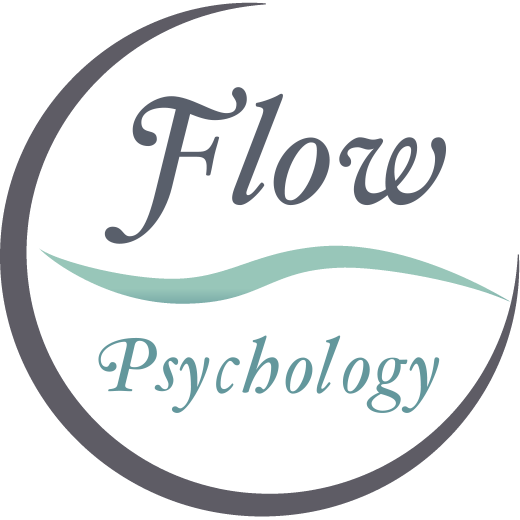Effective Methods for Mental Health Improvement
Therapeutic techniques refer to the methods used by healthcare professionals to help patients manage their physical, mental, and emotional conditions. These techniques are designed to alleviate symptoms, improve quality of life, and promote overall well-being. Different therapeutic techniques are used depending on the patient’s condition, preferences, and goals. In my CBT therapy clinic in Dublin, I specialise in, as it says on the tin CBT Therapy. which I will go into later.
There are many different therapeutic techniques used in healthcare, including cognitive-behavioural therapy, mindfulness-based therapy, art therapy, and music therapy. Cognitive-behavioural therapy is a form of talk therapy that helps patients identify negative thoughts and behaviours and replace them with positive ones. Mindfulness-based therapy teaches patients how to be present in the moment and reduce stress and anxiety. Art therapy and music therapy use creative expression as a way to promote healing and improve mental health.
Overall, therapeutic techniques are an important part of healthcare and can be used to treat a wide range of conditions. By working with healthcare professionals and finding the right therapeutic techniques for their needs, patients can improve their quality of life and achieve better health outcomes.
Overview of Therapeutic Techniques
Therapeutic techniques are methods that mental health professionals use to help their patients improve their mental and emotional health. These techniques are designed to help individuals overcome a wide range of issues, including anxiety, depression, addiction, and trauma.
Cognitive Behavioral Therapy
Cognitive Behavioral Therapy (CBT) is a type of therapy that focuses on changing negative thought patterns and behaviours. It is based on the idea that our thoughts, feelings, and behaviours are interconnected and that by changing one, we can change the others. CBT is often used to treat anxiety and depression.
Mindfulness-based Therapy
Mindfulness-based therapy is a type of therapy that focuses on being present in the moment and accepting one’s thoughts and feelings without judgment. This technique is often used to treat anxiety, depression, and stress.
Dialectical Behavioral Therapy
Dialectical Behavioral Therapy (DBT) is a type of therapy that focuses on teaching individuals skills to manage their emotions and improve their relationships with others. It is often used to treat borderline personality disorder and other conditions that involve difficulty regulating emotions.
Psychodynamic Therapy
Psychodynamic therapy is a type of therapy that focuses on exploring the unconscious mind and childhood experiences to gain insight into current behaviours and emotions. This technique is often used to treat depression and anxiety.
Humanistic Therapy
Humanistic therapy is a type of therapy that focuses on the individual’s unique experiences and perspectives. It emphasizes the importance of self-exploration and self-acceptance. This technique is often used to treat depression and anxiety.
Interpersonal Therapy
Interpersonal therapy is a type of therapy that focuses on improving communication and relationships with others. It is often used to treat depression and other conditions that involve difficulty in relationships.
Overall, there are many different therapeutic techniques available to mental health professionals. Each technique has its own strengths and weaknesses, and the best approach will depend on the individual’s unique needs and circumstances.
Alternative Therapeutic Techniques
Alternative therapeutic techniques are becoming increasingly popular in the field of mental health. These techniques offer a unique approach to therapy, allowing individuals to express themselves in different ways. Here are some of the most common alternative therapeutic techniques:
Art Therapy
Art therapy involves the use of art materials to express emotions and feelings that may be difficult to put into words. This technique can be especially helpful for individuals who have experienced trauma or have difficulty communicating verbally. Art therapy can take many forms, including drawing, painting, and sculpture.
Music Therapy
Music therapy involves the use of music to promote healing and relaxation. This technique can be especially helpful for individuals who have difficulty expressing themselves verbally. Music therapy can take many forms, including listening to music, singing, and playing instruments.
Dance/Movement Therapy
Dance/movement therapy involves the use of movement to promote healing and self-expression. This technique can be especially helpful for individuals who have experienced trauma or have difficulty expressing themselves verbally. Dance/movement therapy can take many forms, including improvisation, choreography, and group dance.
Equine Therapy
Equine therapy involves the use of horses to promote healing and emotional growth. This technique can be especially helpful for individuals who have difficulty connecting with others or who have experienced trauma. Equine therapy can take many forms, including horseback riding, grooming, and caring for horses.
Adventure Therapy

View from the Hell Fire Club, Dublin
Adventure therapy involves the use of outdoor activities to promote healing and personal growth. This technique can be especially helpful for individuals who have experienced trauma or have difficulty connecting with others. Adventure therapy can take many forms, including hiking, camping, and rock climbing.
Overall, alternative therapeutic techniques offer a unique approach to therapy that can be especially helpful for individuals who have difficulty expressing themselves verbally or who have experienced trauma. These techniques provide a safe and supportive environment for individuals to explore their emotions and feelings, and can lead to improved mental health and well-being.
Emerging Therapeutic Techniques
Virtual Reality Therapy
Virtual reality (VR) therapy is an emerging therapeutic technique that uses computer-generated environments to simulate real-life situations that trigger anxiety or fear in the patient. By exposing patients to these situations in a controlled environment, VR therapy can help them overcome their fears and anxieties in a safe and controlled setting. VR therapy has been used to treat a range of conditions, including anxiety disorders, phobias, and post-traumatic stress disorder (PTSD).
Biofeedback Therapy
Biofeedback therapy is a technique that uses sensors to measure physiological responses such as heart rate, blood pressure, and muscle tension. By providing patients with real-time feedback on their physiological responses, they can learn to control their body’s responses to stress and anxiety. Biofeedback therapy has been used to treat a range of conditions, including anxiety disorders, chronic pain, and migraines.
Neurofeedback Therapy
Neurofeedback therapy is a technique that uses sensors to measure brain waves and provide feedback to patients on their brain activity. By providing patients with real-time feedback on their brain activity, they can learn to control their brain waves and improve their cognitive function. Neurofeedback therapy has been used to treat a range of conditions, including ADHD, anxiety disorders, and depression.
Transcranial Magnetic Stimulation
Transcranial magnetic stimulation (TMS) is a non-invasive technique that uses magnetic fields to stimulate nerve cells in the brain. TMS has been used to treat a range of conditions, including depression, anxiety disorders, and chronic pain. TMS is an emerging therapeutic technique that has shown promising results in clinical trials, but more research is needed to fully understand its potential benefits and limitations.
Overall, emerging therapeutic techniques such as VR therapy, biofeedback therapy, neurofeedback therapy, and TMS offer new and innovative ways to treat a range of mental health conditions. While more research is needed to fully understand their potential benefits and limitations, these techniques have shown promising results in clinical trials and offer new hope for patients struggling with mental health issues.
Ethical Considerations in Therapeutic Techniques
Therapeutic techniques are an essential part of the mental health profession. They are used to help individuals overcome emotional, behavioural, and psychological problems. However, the use of therapeutic techniques raises ethical concerns. It is essential for therapists to be aware of these ethical considerations to ensure that they are providing the best care possible for their clients.
Informed Consent
Informed consent is a crucial ethical consideration in therapeutic techniques. It is the process of providing clients with information about the therapy they will receive, including the benefits, risks, and potential outcomes. Clients must be fully informed before they can make an informed decision about whether to participate in therapy.
Confidentiality
Confidentiality is another ethical consideration in therapeutic techniques. Therapists must protect their client’s privacy and keep all information shared during therapy sessions confidential. However, there are exceptions to confidentiality, such as when the client poses a danger to themselves or others.
Boundaries
Maintaining appropriate boundaries is essential in therapeutic techniques. Therapists must avoid any actions or behaviours that could be perceived as exploitative or harmful to their clients. They must also avoid engaging in any dual relationships with their clients, such as becoming friends or engaging in romantic relationships.
Cultural Awareness
Therapists must be culturally aware and sensitive to the needs of their clients. They must recognize and respect cultural differences and avoid imposing their own values and beliefs on their clients. Therapists must also be aware of any biases or prejudices they may have and take steps to address them.
In conclusion, ethical considerations are an essential part of therapeutic techniques. Therapists must be aware of these considerations to ensure that they provide the best care possible for their clients. By maintaining appropriate boundaries, obtaining informed consent, respecting confidentiality, and being culturally aware, therapists can provide effective and ethical therapy to their clients.
If you require any more information please feel free to contact me, thanks Gary



